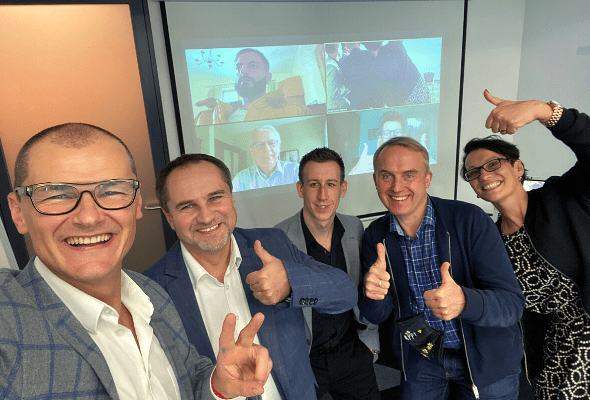12 spectacular business success stories that would not have existed without failures and mistakes at the beginning

Failure is almost an integral part of every success. It’s a path that just looks like going from failure to failure. If it were otherwise, almost everyone would achieve spectacular success without much effort. The owners of the largest companies that have achieved global success know perfectly well that every stumble is not a reason to give up, but to find a new way of acting. Sometimes it turns out that a painful failure or a huge mistake at the beginning of the business journey is the factor that caused the company to go in a different direction than before – towards the very top, leaving all the competition behind. It’s no different for the biggest companies you know very well, like Google or Facebook. Read 12 spectacular business success stories that would not have happened without failures and mistakes at the very beginning.
1. FedEx
FedEx, an American logistics and parcel transportation company, delivers approximately 1.2 billion parcels annually. The founder of FedEx, the world’s first parcel delivery company, Frederick W. Smith, was a student at Yale University in 1965 and analyzed the market for traditional mail delivery times. In those days, parcels and letters were only delivered by traditional mail, using traditional transport, roads, cars and postmen. He proposed a system that would speed up shipments using airplanes and deliveries within one day. His professor at university did not consider the idea to be realistic and questioned the point of such a service, arguing that no one would want to pay much more for faster deliveries. Frederick Smith founded the company using inheritance, loans and capital investments. Unfortunately, just two years after starting its operations, the company ran into financial problems and was on the verge of bankruptcy.
It came to the point that pilots had to pay the bill for aircraft fuel themselves using private money. Due to his lack of faith that the company’s situation could improve, Frederick went to Vegas and decided to play blackjack – he won an amount that allowed the company to survive for one more week. However, it was the money Smith later obtained to stabilize the company’s finances that allowed the company to record its first major profit. FedEx currently operates 660 aircraft and operates in approximately 220 countries. The story with blackjack is just a thread about the fact that you can simply get lucky. However, it was Smith’s quick reaction to the bad financial situation, immediate raising of money and not repeating the mistakes that led to earlier bankruptcy that allowed the company to succeed and be one of the leading companies in the industry.
2. Haier
The Chinese communist company, founded in 1985 under the name Qingdao Refrigerator Co., producing household appliances, hired the young, ambitious but inexperienced in running a business, Zhang Ruimin, as the president of the management board. From the first day of work, Zhang encountered a major problem of the company’s lack of financial liquidity and decided that he would personally obtain funding. Believing in the future greatness and his own vision of the company, he loaned the company his own money and asked local financial institutions and local authorities for support and credit for the company. After solving this problem, however, another, bigger problem appeared: he received a lot of letters from customers about the poor quality of refrigerators produced and delivered by this local manufacturer of household appliances. Unfortunately, at that time, this was standard in the communist economy of China.
However, he decided to make employees aware that by producing faulty refrigerators they would not be able to survive on the market.He invited all employees to the main hall of the company, asked for all defective refrigerators that did not meet customer expectations to be delivered to this hall, took a pickaxe in his hand, and began publicly and personally destroying the defective refrigerators. Each of these destroyed refrigerators was equivalent to hundreds of the salary of an average employee at the company, and this made it shocking for the workers. At that time, only the richest Chinese could afford to have their own refrigerator. This action made employees aware that each of their actions and involvement translates into the final quality of products delivered to customers.
In addition to the lack of quality control, the company also struggled with problems such as poor infrastructure, inept management and the lack of a business and marketing strategy. Ruimin slowly coped with these challenges, changing the company’s name to Haier, buying out its biggest competitor Red Star Electric Appliance Factory, becoming the most recognizable manufacturer of household appliances in China, then throughout Asia, and in 2016, as part of the implementation of its global strategy, the company acquired the largest manufacturer of household appliances in the USA, General Electrics Appliances. Currently, Haier is one of the leading companies in the household appliances industry and competes with brands such as Bosch and Whirlpool. In 2013, the company achieved success in the form of the highest share in the household appliances market in the world. To find out more about Haier, click here.
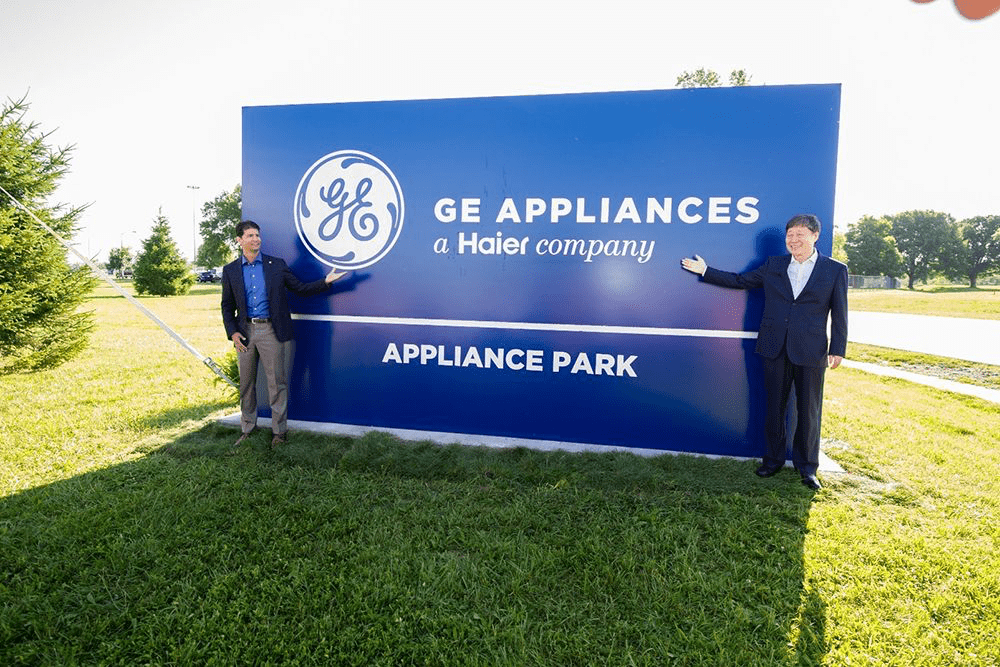
3. General Electrics
Starting a company is often associated with people’s doubts about the idea itself. When General Electrics was established as a result of the merger of Edison Electric Light Company and Thomson-Houston Company, few people believed that this business could enter the market. Before he discovered the light bulb, Thomas Edison made about 10,000 attempts to prove to people the existence of electricity. Both Edison and General Electrics achieved spectacular success, and many of the patents and business methods he implemented are still used today. Edison himself is now considered one of the most distinguished Americans of his time. To find out more about General Electrics- click here
“Sometimes you have to experience a disaster to get back on track” Jack Welch, CEO of General Electrics
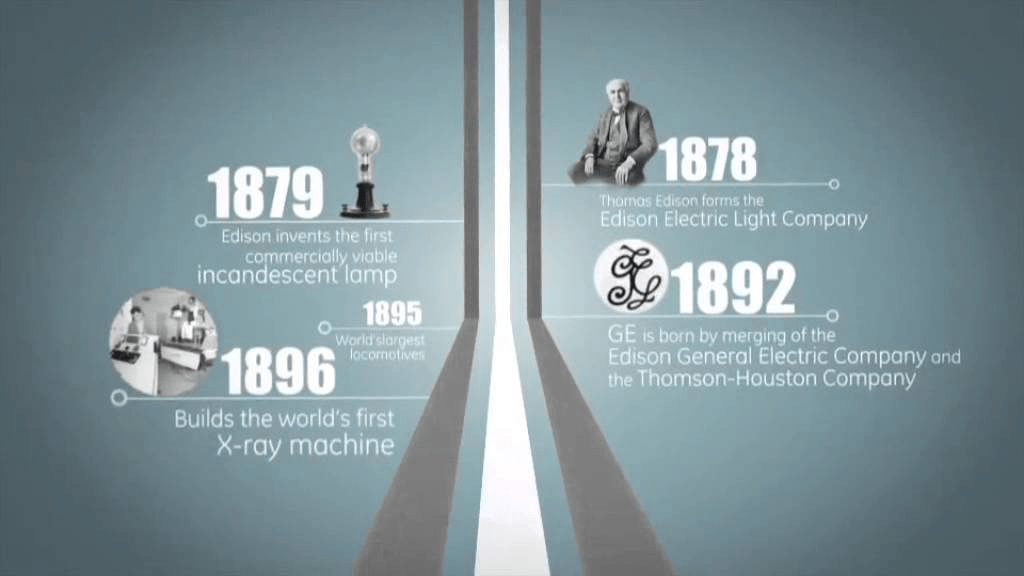
4. Pixar
Do you know Pixar? You may not recognize the name of this studio (it eventually became part of The Walt Disney Company in 2006), but you certainly know the animated film Toy Story that was produced by them. Despite its commercial success, the workers making Toy Story genuinely hated their jobs. When Edwin Catmull, president of Pixar, found out about this, he was quite shocked. Despite the open door policy, no employee has previously expressed a negative opinion. The film employed people who had previously worked on a freelance basis and, having a secure job in production, they did not want to be perceived as people who complain. When Edwin realized that ⅓ of his employees hated their jobs, he began to create a different organizational culture to provide them with better working conditions. This situation made him realize that creating a company involves huge challenges in every area.

5. Brand24
Another example, this time from our Polish IT backyard, shows how you can overcome financial problems and reach the very top. Brand24’s most famous product is a tool for monitoring the Internet and social media. The company needed PLN 100,000 to start its operations, but no investor was interested in the offer. This is a perfect example of how a good product will defend itself – it was thanks to the first positive opinions that the company gained international popularity. Currently, the company achieves several million revenues and serves companies such as IKEA and Intel.

6. Alibaba
Alibaba is the Chinese equivalent of Amazon, and its current market value exceeds USD 400 billion. The beginnings were not rosy for the founder of this company either. Jack Ma couldn’t find a job after graduating – and even KFC rejected his application! Today, Ma is one of the 20 richest people in the world, and his story can be an inspiration for anyone who wants to start their own business but is afraid of failure. This entrepreneur is a perfect example of the fact that if we really want to achieve success, it is possible, despite a difficult start.
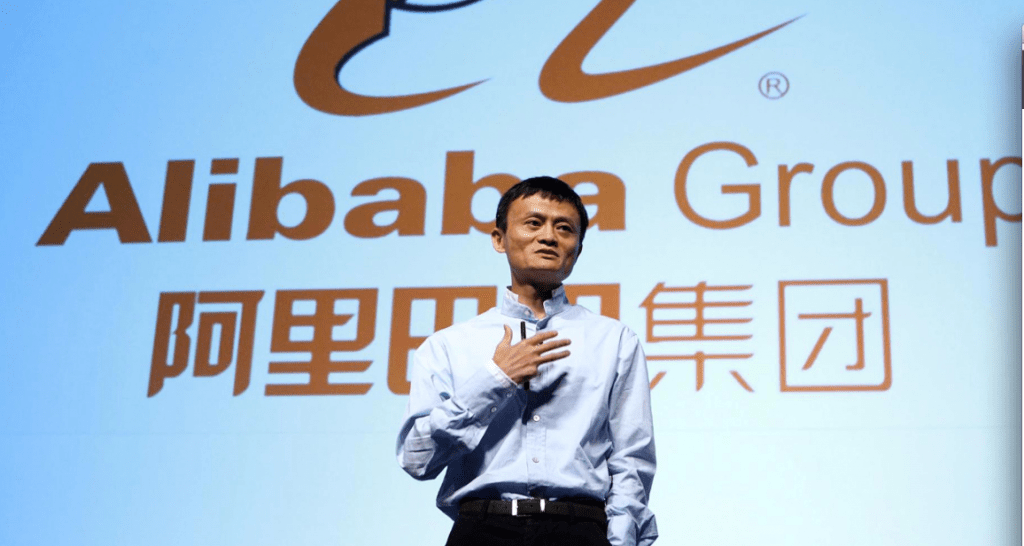
7. Ford
Henry Ford is undoubtedly one of the greatest figures in the history of the automotive industry. From an early age he was fascinated by technology and became interested in cars. Before he introduced the famous Ford T., he had several companies that went bankrupt. In addition to the difficult beginnings on the entrepreneurial path, the company claiming the patent for the production of cars wanted to impose fees on Ford plants, which ended in a 6-year lawsuit (the lawsuit against Ford was rejected). Henry Ford was successful not only in business. It changed the perception of cars as a privilege for the wealthiest people, to a universally accessible means of transport for people all over the world. He had a huge impact on today’s car production model and comfortable and accessible travel.

8. Amazon
One of the most expensive enterprises in the world today began with a major investment by Jeff Bezos in an online bookstore. In the 1990s, Jeff guessed that the Internet would be the future of business and left his current job to build the company. However, shortly after opening the company, he encountered his first problems – he was sued by another company for spreading the slogan that his company was the largest bookstore in the world.
Then another company, a supermarket, accused him of revealing the company’s secrets by hiring its former employees. Another failure was Amazon Auctions, which was supposed to be a competitor to eBay and the project was not a success. These failures and the lessons learned from them translated into the ultimate success that Amazon achieved. And what was his key to this success? First of all, a clearly defined vision, goal of the company and treating every mistake and failure as a lesson for the future. To find out more about Amazon- click here.

9. Apple
iPhone is not the first device with a touch screen to appear on the market. However, no company has so far achieved such spectacular success in this industry and reopened the tablet market. However, in 1984, when Steve Jobs presented his first Macintosh computer, its sales turned out to be a total failure. The company then promoted its hardware as a computer „for the rest of us.” After the failure, the slogan had to be changed and Jobs had to think about a new campaign.
After changing the slogan to a computer „for the best of us”, computers began to be promoted as „the better ones” on the market. The Apple business itself began its history in a garage, and shortly after it started, one of Steve Jobs’s partners stopped working. After intensive development of the company and employing many employees, Steve Jobs was fired from the company he had worked so hard to establish. In addition to marketing problems, the company encountered other problems, such as technical and financial problems. When Steve Jobs died in 2011, he left behind a company worth $300 billion and the following, one of the most modern offices in the world. To find out more about apple, click here.

10. Facebook
Having a Facebook account is often compared to „being on the Internet”. You could laugh at it if it weren’t true – it’s the most popular social networking site and you probably don’t know many people who don’t have a profile there. Mark Zuckerberg, currently one of the richest people in the world and the founder of Facebook, before arriving at the current version of the website, worked on another website known as Facemash.
It was a rather primitive application for comparing the attractiveness of students and creating a ranking of the „sexiest” ones. Mark was then threatened with expulsion from school, which had to be closed for several days. It is worth mentioning that the founder of Facebook has been accused many times of using personal data and stealing other people’s ideas. Despite so many failures, Facebook is today the most famous social media, and the website itself is valued at approximately $165 billion.

11. Google
When Sergey Brin and Larry Page started to create Google, there were already a dozen or so search engines in use on the market, including the largest one – Yahoo. Fascinated by the Internet, students saw all sorts of problems in the search engines of that time and came up with a brilliant idea to create a new one based on algorithms. However, they had trouble finding an investor – almost everyone rejected their idea and did not believe in the future of this business.
When the first $100,000 was raised to start the company, the next mistake was the lack of liquid profits (the company did not charge fees for using the search engine and advertising). A year after the official founding of Google, the company signed its first major contract, and its successes have already snowballed. Today, everyone uses this most popular search engine, and Google’s algorithm is the company’s most closely guarded secret – so far, SEO specialists have managed to discover only 40% of the factors influencing the position in the search engine, and Google is constantly changing its algorithms.
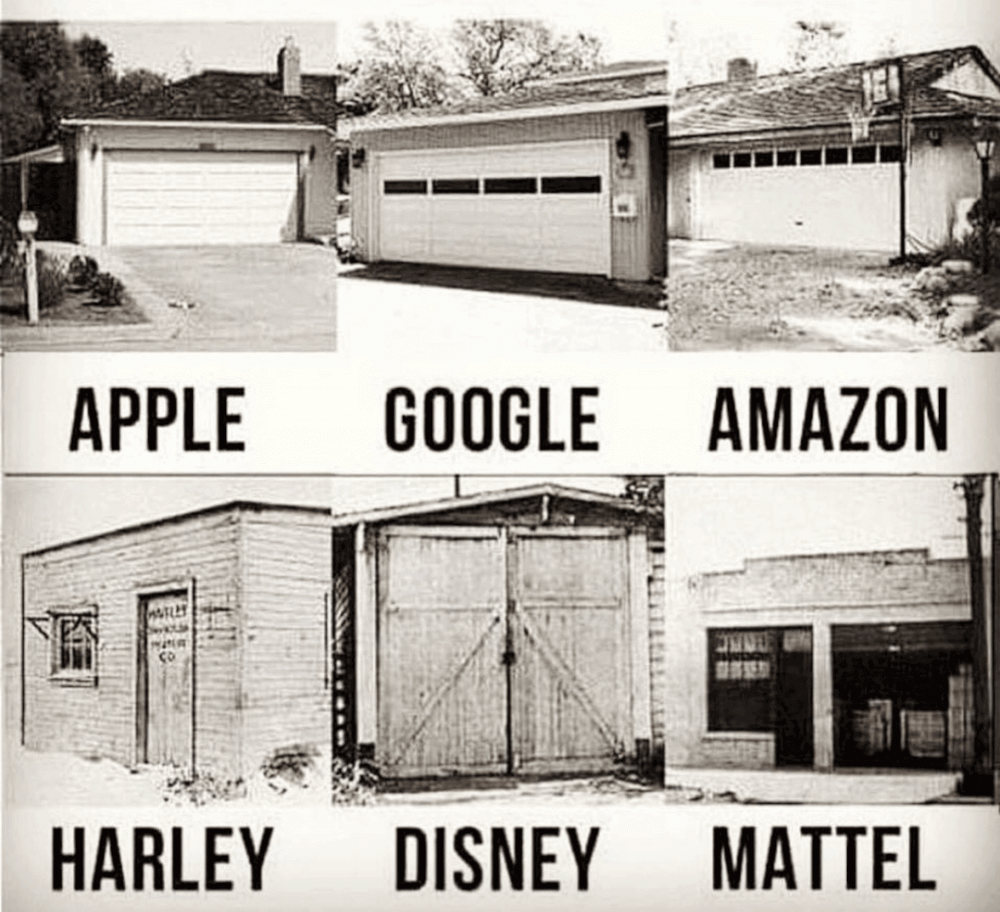
12. PerfectCircle®️
When Marek Wzorek, after 25 years of a spectacular business career, decided in 2017 to leave the lucrative position of president of the management board of igus Sp. z o. o. and founded a business coaching company called PerfectCircle®️, many people did not predict business success for this project. At that time, some people associated coaching with public speaking, others with psychology, and still others with quackery. Marek began searching for the fastest and most valuable methods of business development, sales, marketing, education, personal development, processes and technology.
He analyzed the methods and processes of the most effective entrepreneurs, multimillionaires, marketers, salespeople, trainers, coaches, business coaches, executive coaches and business strategists. This search resulted in the development of tools and processes that he began to use with Polish entrepreneurs, directors and presidents of companies such as V-TAC, Sygnity S.A., Asapon, and many others. The successes of these organizations and the leaders behind them began to attract more clients, the clients then recommended these services to others, and innovative business coaching and executive coaching processes under the PerfectCircle® brand began to find their way into many enterprises in Poland and then around the world.
Wanting to develop the company further into the target vision of a global, turquoise organization and a global franchise network, he began to be joined by further business coaches whom he trained himself in the #PerfectCircleCommunity Academy of Executive Coaching and Business Coaching, created for these purposes, and so the company began to serve an increasing number of customers in Poland and around the world. In this way, the PerfectCircle®️ brand and business coaching and executive coaching processes carried out by business coaches operating under this brand began to be associated with the highest quality on the market and the fastest way to achieve goals and achieve life, business, sales, marketing and strategic successes. Thanks to his perseverance and determination, Marek developed the company, creating a well-coordinated team, a proven business model and a turquoise organization from scratch.
Any obstacles the company faced from the very beginning (the company’s operations started in 2018) made Marek, and later also the entire PerfectCircle®️ team, more persistent to implement the global vision of the organization with 50 branches by 2025, in the largest countries in the world and an efficiently operating franchise network with 5,000 coaches business, executive coaches and strategic advisors operating around the world. This network of the best educated, with the highest business ethics and operating with the latest tools entrepreneurs and business coaches, operating in every corner of the world, already helps and will help ultimately develop millions of businesses, people, non-profit organizations, governments, solve global problems, sowing in every the seed of more ethical business and happier lives, inspiring others to create more turquoise organizations.
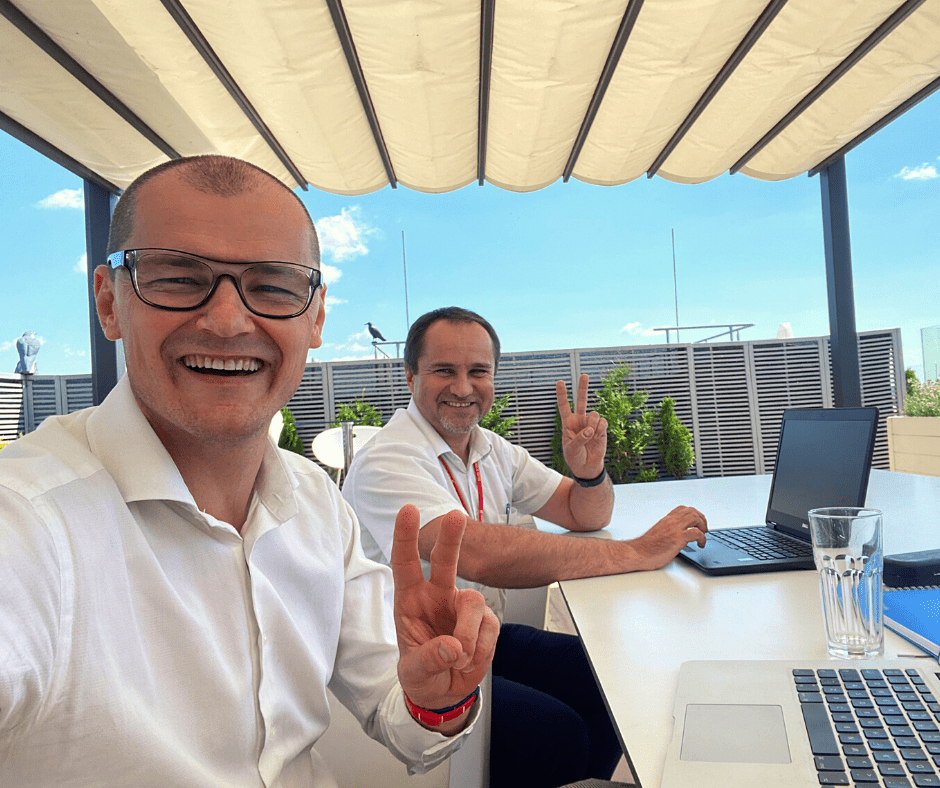
The vision of PerfectCircle®️ is to create a global network of business coaches, executive coaches and coaches supporting the development of people and organizations. We effectively develop turquoise management. Do you want to meet our team or join us? Sign up for the next WEBINAR, during which you will learn how to join the first Academy of Business Coaching and Executive Coaching in Poland #PerfectCircleCommunity – SIGN UP.
Source:
